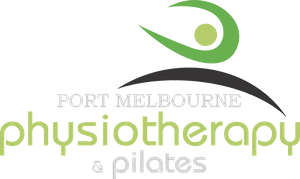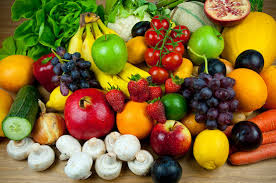Combine cold, wet, blustery weather along with work stress, exercise and training, and social commitments and you have the perfect environment for a weakened immune system – colds, flus and viruses to boot! It’s no wonder that during winter, just about every second person you see is sniffling, coughing, spluttering, a viral incubus or “just getting over a cold”.
So how do you avoid getting sick this cold/flu season?
Along with avoiding close contact with people who are sick, frequent hand washing, adequate rest and recovery, here are my top nutrition tips for maintaining a strong immune system this winter:
- Fuel appropriately. Enjoy regular, balanced meals, with foods from each of the food groups, aiming to meet your individual requirements for total calories, carbohydrates, protein and healthy fats. It’s particularly important not to skimp on healthy, complex carbohydrates (e.g. starchy vegetables, fruit), just remember to portion control. This is because dietary carbohydrate is a critical fuel source for both muscle cells and immune system cells.
- Eat plenty of fruits and vegetables. Fruit and vegetables are packed with vitamins (vitamin C for example, which helps your body fight against bacterial infections), minerals and antioxidants (antioxidants such as carotenoids, which are Vitamin A precursors and help support vision and the immune system), all of which are important for maintaining a strong immune system. Aim to have 2 serves of fruit each day, and make sure to enjoy at least half a plate worth of salad/low starch vegetables at lunch and dinner; make your plate as colorful as possible, enjoying the nutrient benefits of a wide variety of fruits and vegetables each day.
- Anti-inflammatory, healthy fats. Include a moderate amount of healthy fats, particularly omega-3 fatty acids, in your eating plan. One way to get your omega-3 fatty acids is to have oily fish, like salmon, at least twice during the week at lunch or dinner. Other foods containing healthy fats include avocado and nuts, in particular almonds and walnuts.
- Ensure an adequate intake of protein. Protein helps to nourish your immune system. Aim to include some protein at each meal and snack. Good sources of protein include lean meat, skinless chicken, fish, eggs, lentils and legumes, nuts, dairy.
- Get your garlic breath on! Garlic has many health and immune-boosting benefits – it has been known to reduce the duration and severity of colds. It has anti-bacterial and anti-viral properties (it’s sometimes referred to as a natural antibiotic) due to its allicin content. Allicin, a potent phytonutrient in garlic also supports heart health.
- Ensure adequate fluid intake, to prevent dehydration and to maintain optimal body functioning.
- Your healthy starts in your gut! Include probiotics (for example Inner Health Plus), natural yoghurt, Kefir or Kombucha in your nutrition plan, as these enhance gut health and immunity.
- Consider a multivitamin and mineral supplement such as ‘Super greens and reds – Superfood Multivitamin’ powder (available from your local healthy food store). Add to water, juice or a smoothie. This supplement contains antioxidants, vitamins and minerals and while it shouldn’t replace a healthy, nutritious, balanced eating plan, it may help to supplement your intake, ensuring you are getting the nutrients that your body needs to maintain a strong immune system this winter!
Poor nutrition and stress can have a negative impact on your immune system. Enjoying a healthy, balanced eating plan with foods from each of the food groups, thereby ensuring an adequate intake of vitamins and minerals, preventing deficiencies, is the key to maintaining a strong immune system throughout winter. No one wants to get sick! A healthy, balanced nutrition plan is your ticket to preventing colds and flus this cold/flu season.
– Margaret
References:
Burke, L. and Deakin, V. Clinical Sports Nutrition, ‘Nutrition for the athletes immune system: eating to stay well during training and competition’, p 501-507. The McGraw-Hill companies. Fourth edition 2010. Text © 2010 Louise Burke and Vicki Deakin.
Hutchison, J. ‘Nutrition Strategies for a Healthy Immune System’. http://www.ironman.com/triathlon-nwes/articles/2007/02/nutrition-strategies-for-a-healthy-immune-system.aspx#axzz2qt2QEOuh accessed 20/01/14.
Moore, P. ‘How Exercise Affects Your Immune System’. http://triathlete-europe.competitor.com/2010/08/20/exercise-affects-immune-system accessed 20/01/14.
Allicin. http://en.wikipedia.org/wiki/Allicin accessed 17/5/15.
Leech, Joe. 11 Proven Health Benefits of Garlic. http://authoritynutrition.com/11-proven-health-benefits-of-garlic/

